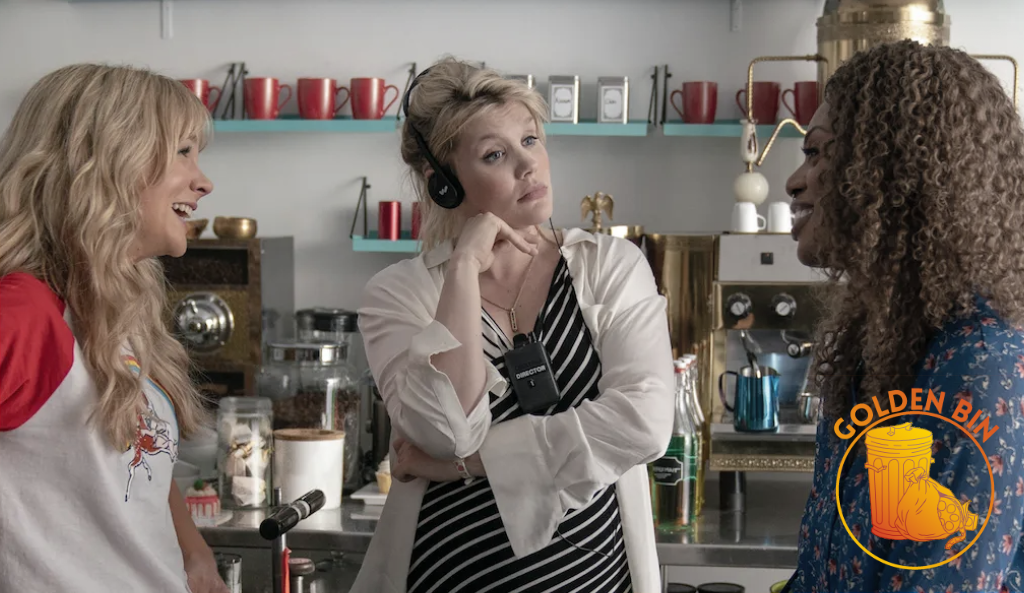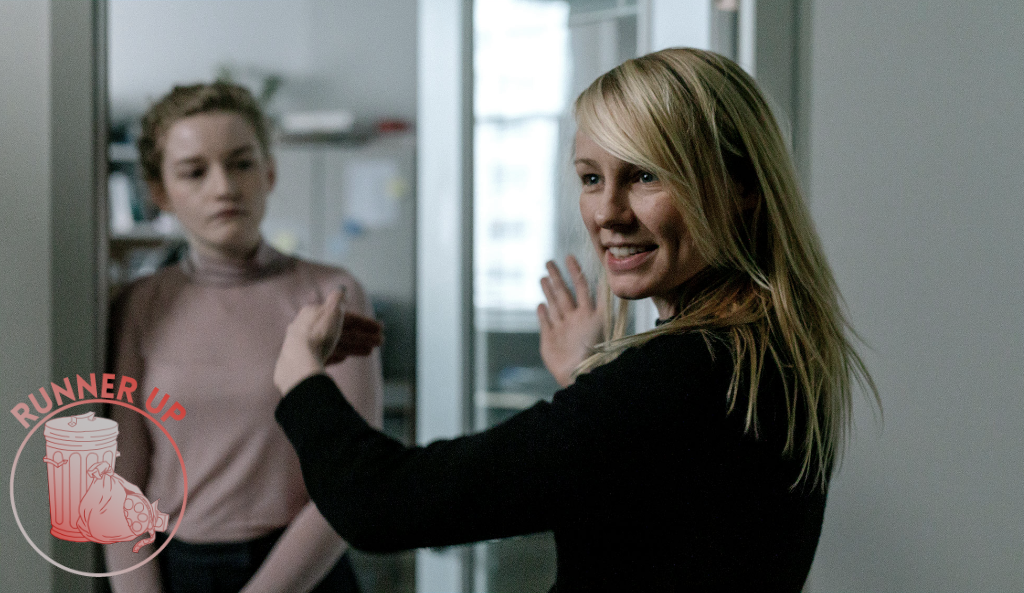
The Golden Bin Awards: Best Director
April 19, 2021Did you know this Oscar has only gone to a woman once?
In this series based on the Oscars Deathrace series of articles I wrote for The Phoenix News over the last few years, I spotlight my personal picks for this year’s Oscars, as well as some notable snubs.

Winner: Emerald Fennell – Promising Young Woman
The first scene of Promising Young Woman shows three office workers in a club dancing to Charli XCX’s song “Boys”. It’s shot the same way a director might shoot young women dancing to the same song: the men swing their hips, shots focus on the groin area, the lighting is colourful and helps emphasize the guys’ natural curves (or lack thereof). As the camera swings around in slow motion, showing off three middle-management employees in business-casual khaki pants, the audience is forced to ask why Emerald Fennell decided to start with such a ridiculous sequence.
The answer is that Promising Young Woman is a movie that takes even the smallest sexist tropes and turns them on their head. It’s not just this dance sequence that’s weird, maybe they all are. Maybe a scene of three guys letting loose after a long day at work is no different than a scene of three women dancing in the club. Maybe male-gaze filmmaking is kind of dumb.
Promising Young Woman follows Cassie Thomas (Carey Mulligan), as she embarks on a mission to avenge her friend who was sexually assaulted several years ago. In doing so, Cassie regularly puts herself into danger as a kind of anti-sex-crimes-vigilante. She’ll pose as drunk to entice men into bringing her home, then confront them if the night turns sour. These scenes often start off comedic, or even seemingly sweet (to a point), but turn serious on a dime. Tonally, Fennell swings between romantic-comedy and horror, and manages to do so in a way few directors can pull off.
Fennell’s skill as a director comes from her willingness to make bold, non-obvious choices often. Cassie regularly makes questionable choices that can even seem evil in the moment: she kidnaps a child, drugs an old friend, cancels plans with her boyfriend in favour of pretending to get drunk at a club. Fennell uses each of these scenes as a teachable moment for Cassie, the audience, and at least one other character in the film (all of whom Fennell manages to demonize equally).
A lesser film might rely on a message of “revenge makes no one happy”, or worse, the opposite. Promising Young Woman manages to avoid both of those messages, painting all its characters as bad guys in their own way, and scathingly condemning complacency. By the end of the movie, even the actual villains of the story are only barely less likeable than the character who sat back and did nothing or managed to deflect responsibility.Promising Young Woman is one of the most effective pieces of storytelling released this year, with everything from the screenplay to the camerawork collaborating to deliver its message.
With Promising Young Woman, Fennell wants to make the audience angry, and every decision she makes serves that purpose.

Runner Up: Kitty Green – The Assistant
Drawing from the #MeToo movement, The Assistant explores the reasons people don’t speak up about “open secrets” in Hollywood.
The Assistant shows a day in the life of Jane (Julia Garner), a recently hired production assistant to an offscreen Hollywood producer. As Jane goes about her day, she begins to suspect the producer may be using his position to exploit people around him, shirk responsibilities, and take advantage of young actresses.
However, when Jane decides to speak up, she’s consistently shot down by the coworkers and employees of the producer, who defend him despite seemingly all despising him.
The producer in The Assistant is never shown. Director Kitty Green instead opts to make him a stand in for any high-ranking workplace creep that comes to mind. The few times his voice is heard, he’s either berating Jane, making it very clear to his newest assistant that she is replaceable, or consoling her when she doesn’t need it. He’s clearly tone-deaf, but it never hits as a surprise, since it’s the tamest thing implied about him.
The environments in the assistant are thoroughly average, and Jane’s tasks mundane. Over the course of the day, she gets coffee, takes calls, meets with clients angry her boss was unavailable at the scheduled time, etc. The mundanity of the plot helps to emphasize the things that are “off” within the story. When Jane finds an earring in her producer’s couch, the audience immediately notices. Whenever a character makes an offhand joke implying something unnerving about the producer, it’s immediately apparent. Since nothing obviously extraordinary happens, The Assistant begs the audience to question what of its events actually are ordinary. By the end, The Assistant offers no easy answers, while still making it clear where it lies. Is it possible that Jane is disillusioned with her job, but nothing’s really wrong? Absolutely.
Should she be worried that a human resource officer thought it necessary to mention that she wasn’t her boss’s “type”? Probably yes.
Honourable Mentions:
Florian Zeller – The Father, Jasmila Žbanić – Quo Vadis, Aida?, Eliza Hittman – Never Rarely Sometimes Always

